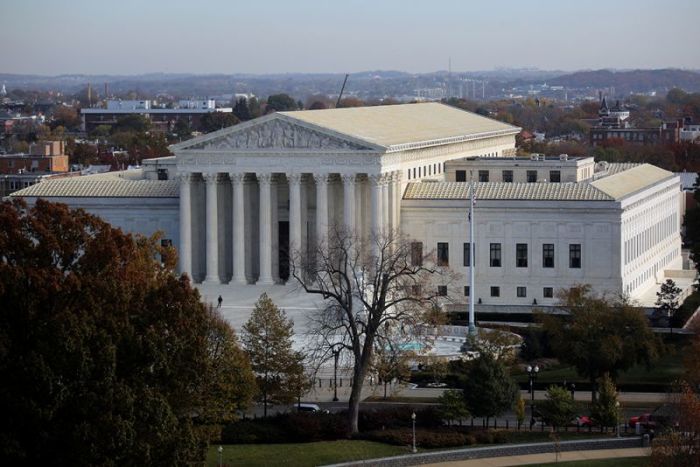Supreme Court to review affirmative action admissions policies at Harvard, UNC

The U.S. Supreme Court has agreed to hear a pair of cases that may result in the striking down of race-based affirmative action programs in higher education.
In an orders list released Monday morning, the high court agreed to hear Students for Fair Admissions, Inc. v. University of North Carolina and Students for Fair Admissions Inc. v. President & Fellows of Harvard College, consolidating the two cases.
The advocacy group contends that Harvard and UNC's admissions system is discriminatory to Asian American and white students.
However, those challenges were struck down in lower courts, which have ruled that the schools’ policies are based on government interests to promote diversity.
A federal court in Boston ruled in favor of Harvard in 2018, a decision that was affirmed by the U.S. 1st Circuit Court of Appeals in November 2020. The case was appealed to the Supreme Court last February.
After a federal court ruled against the group’s UNC lawsuit last year, the SFFA petitioned the Supreme Court in November for both cases to be heard together.
“We are grateful the Supreme Court accepted these important cases for review,” SFFA President Edward Blum said in a statement. “It is our hope that the justices will end the use of race as an admissions factor at Harvard, UNC and all colleges and universities.”
Both cases center on whether to overturn the 2003 Supreme Court ruling in Grutter v. Bollinger, which upheld an affirmative action policy at the University of Michigan Law School.
In the 2003 case, a white Michigan resident sued the university after being rejected, claiming that the law school policy violated the federal Civil Rights Act and the 14th Amendment of the U.S. Constitution.
A majority of the Supreme Court justices concluded at the time that the Michigan policy was not unlawful, as the racial preference was only one of many parameters for acceptance to the school.
Justice Sandra Day O’Connor, a Reagan appointee, authored the majority opinion and was joined by Justices Ruth Bader Ginsburg, Stephen Breyer, John Paul Stevens and David Souter.
“When race-based action is necessary to further a compelling governmental interest, such action does not violate the constitutional guarantee of equal protection so long as the narrow-tailoring requirement is also satisfied,” wrote O’Connor.
“Universities can … consider race or ethnicity more flexibly as a ‘plus’ factor in the context of individualized consideration of each and every applicant.”
Chief Justice William Rehnquist, a fellow Reagan nominee, authored a dissenting opinion to the 2003 ruling. He was joined by Justices Antonin Scalia, Anthony Kennedy and Clarence Thomas.
“We have said that when it comes to the use of race, the connection between the ends and the means used to attain them must be precise,” wrote Rehnquist.
“But here the flaw is deeper than that; it is not merely a question of ‘fit’ between ends and means. Here the means actually used are forbidden by the Equal Protection Clause of the Constitution.”
In 2016, the high court issued a 4-3 decision upholding the right of the University of Texas to have a program that included race as a factor for admissions, with Justice Anthony Kennedy authoring the majority opinion.
In a July 2021 piece for Forbes, political science professor Evan Gerstmann argued that, given the current makeup of the Supreme Court, race-based affirmative action may be labeled unlawful.
The court has a 6-3 conservative majority with the recent confirmations of Trump nominees Justices Amy Coney Barrett, Neil Gorsuch and Brett Kavanaugh.
“Its decisions have not been uniformly conservative so far, but even the more centrist Justices, such as Chief Justice Roberts, have expressed a lot of doubt about the use of race in university admissions,” wrote Gerstmann.
“Furthermore, in 2003, the majority of the Supreme Court signed on to a decision stating ‘the Court expects that 25 years from now, the use of racial preferences will no longer be necessary’. That clock has almost run down.”




























